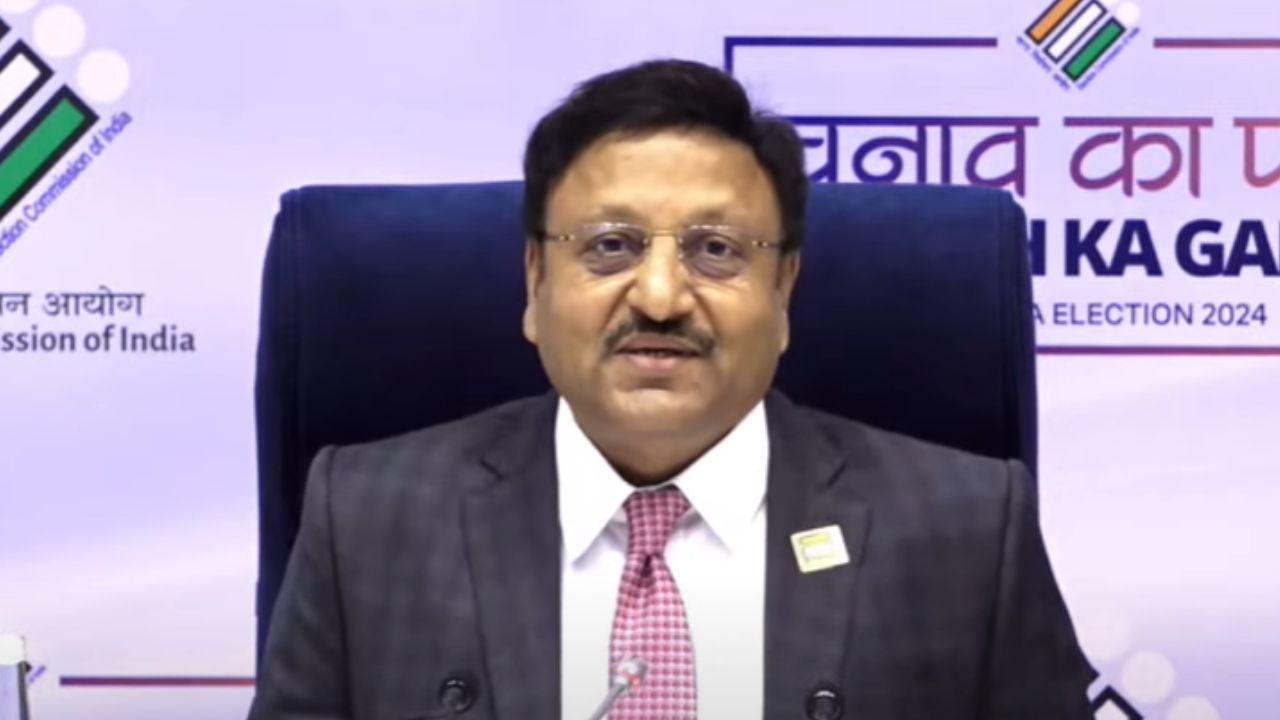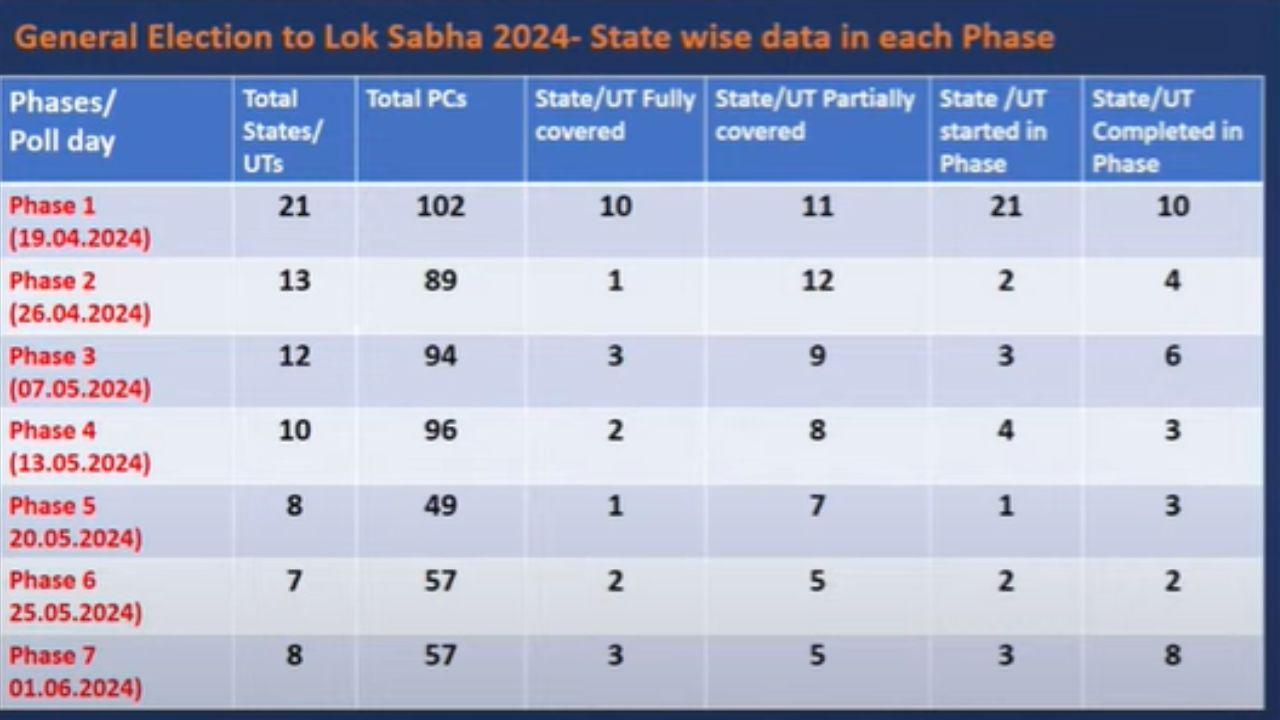The Election Commission of India on March 16, Saturday, announced dates for Lok Sabha elections 2024. The first phase of voting will be held on April 19, 2024

CEC Rajiv Kumar announced the dates on March 16/ Screengrab
The Election Commission of India, on March 16, announced the dates for the Lok Sabha elections 2024 and said it will be held in seven phases. He said that phase 1 of the elections will be held on April 19, 2024, the Commission said. In the second phase, 21 states will vote on April 26, 2024. In phase 3, 12 states will be voting on May 7. The Commission further noted that the polls for phases 4, 5, 6 and 7 will be held on May 13, May 20, May 25 and June 1 respectively.
The counting of votes for all ballots will be held on June 4.
 Dates of Lok Sabha elections 2024/ ECI
Dates of Lok Sabha elections 2024/ ECI
The announcement was made by Chief Election Officer Rajiv Kumar and Election Commissioners Gyanesh Kumar and Sukhbir Singh Sandhu. Gyanesh Kumar and Sandhu were the first election commissioners appointed after the new legislation concerning the appointment of CECs and ECs came into effect.
The ECI also announced that simultaneously state assembly elections which are Sikkim, Odisha, Arunachal Pradesh and Andhra Pradesh. Polls in Andhra will be held on May 13, while polls in Sikkim and Arunachal Pradesh will be held on April 19.
CEC Rajiv Kumar, who addressed the media, said that there are 97 crore registered Indian voters and that the poll body conducts elections across 10.5 lakh polling booths with assistance from 1.5 crore polling officials and security staff. Kumar said 55 lakh electronic voting machines (EVMs) will be used.
He further stated that 49.7 crore voters are male, 47.1 crore are female and 48,000 transgender voters. He said that 1.8 crore persons, aged between 18-19, will be voting for the first time in the Lok Sabha elections 2024. He said that ECI had included those who will turn 18 in 2024 were allowed to file early applications and thus enabling them to vote in the present elections. Kumar said they had received nearly 13 lakh applications. Speaking about women's participation he said that elector gender ratio has increased to 948.
The commission added that it will be the first time that the poll body will send personnel to collect ballots of those aged above 85 if they choose to vote from home.
What is the Model Code of Conduct?
The Election Commission of India has issued guidelines for conducting elections in the country, outlining the dos and don'ts for political parties and candidates before and during the electoral process.
These guidelines, collectively known as the Model Code of Conduct, serve as a set of instructions to ensure fair and transparent elections. They comprise various aspects of campaigning, general conduct, and meetings during the electoral period, and remain effective until the entire election process concludes.
Key points of the Model Code of Conduct include prohibiting the solicitation of votes based on caste or religion, refraining from inciting hatred or tension among different communities, allowing criticism of policies and programs without resorting to personal attacks, and avoiding activities such as threatening voters or distributing bribes.
The guidelines also dictate rules regarding the use of public and private properties for campaign purposes, organizing meetings and rallies, seeking permissions from authorities, and maintaining neutrality in the use of government resources.
Additionally, restrictions are imposed on the timing and content of advertisements, the use of government machinery for campaigning, and the announcement of new schemes or projects by ruling parties during the election period.
While the Election Commission strives to enforce these guidelines to ensure fair and peaceful elections, there remains a need for greater adherence to these regulations, highlighting the necessity for electoral reforms in the country.
 Subscribe today by clicking the link and stay updated with the latest news!" Click here!
Subscribe today by clicking the link and stay updated with the latest news!" Click here!








